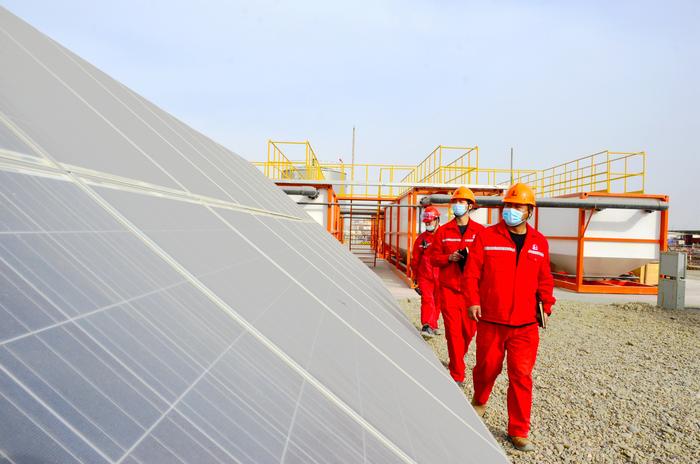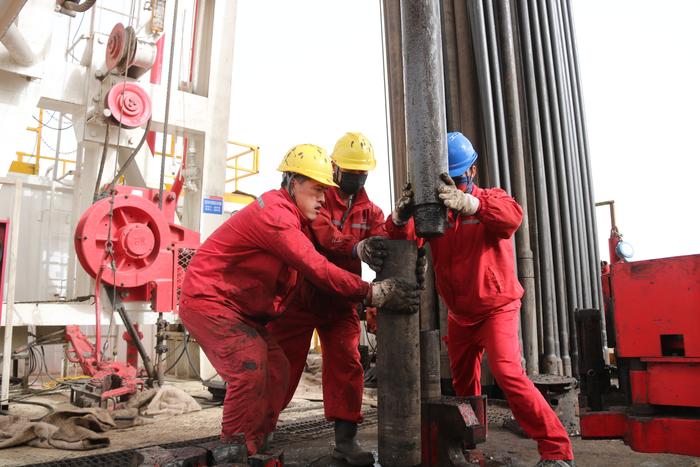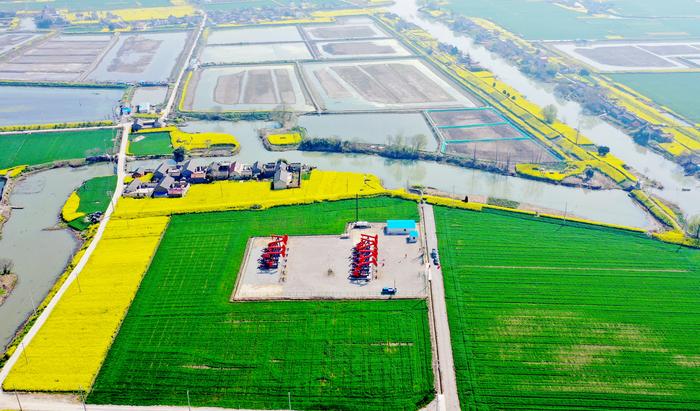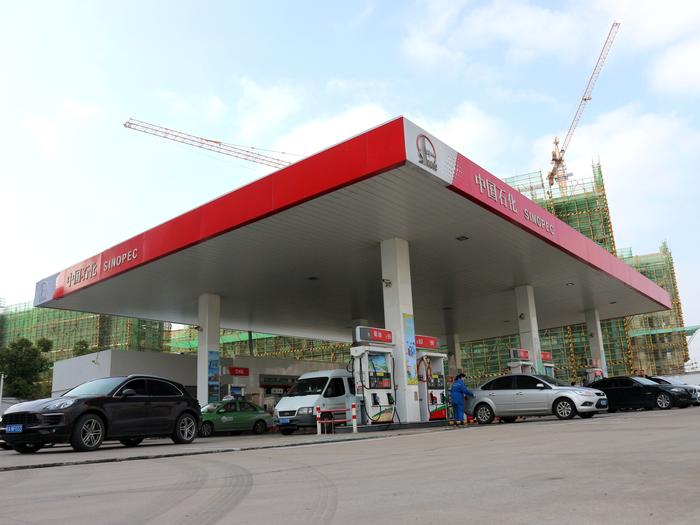|
| 2021-03-29 来源: 中国石化新闻网 |
| 石化新闻 |
中国石化新闻网讯 据3月28日RT报道,随着欧洲继续加强出行限制措施延,欧洲旅游业的低迷可能会对石油和天然气产生连锁反应。 由于德国、法国和意大利都宣布将在复活节之后实施新的封锁措施,欧洲航空公司的股价本周暴跌。包括英国在内的几个国家的度假旅行也受到限制,至少在5月份之前,将对违反规定的人处以5000英镑(合6900美元)的罚款。 Oanda的市场分析师Sophie Griffiths解释称:“由于限制措施不知何时才会结束,投资者们很难对航空公司保持乐观。” 英国航空公司(British Airways)的母公司国际航空集团(IAG)股价本周下跌4.4%,英国石油公司(BP)下跌3.7%。旅行社途易(TUI)下跌6.1%,邮轮运营商嘉年华(Carnival)下跌5.5%。第三波新冠肺炎疫情已使石油和天然气行业陷入混乱,需求低迷再次威胁到该行业。本周二,布伦特原油期货价格下跌近5%,至每桶61.41美元。尽管布伦特原油2021年的价格前景乐观。今年第一季度价格一直在稳步攀升,但欧洲需求的意外变化对未来几个月的油价构成了威胁。 特纳梅森公司(Turner Mason & Co.)的石油分析师乔纳森·里奇(Jonathan Leitch)认为:“我们不会达到季节性的峰值,也不会出现我们预期的复苏。与2019年同期相比,欧洲的航班数量下降了60%。伦敦希思罗机场1月份的客运量比去年同期下降了89%,但随着英国封锁的放松,这一情况有望改善。很明显,我们将迎来一个旅行业动荡的一年,特别是如果欧盟在疫苗接种计划方面继续落后,那么旅行可能会受到更大的限制。” 此外,法国也出台了新的限制措施,禁止跨地区旅行,这将不可避免地降低汽车燃油需求。在目前的限制下,公路、航空和海上旅行预计都将受到严重冲击,对石油和天然气行业造成连锁反应。 迄今为止,西欧的航空运力损失比例是全球最高的。这导致欧洲的飞机和煤油需求在12月降至每天44万桶,约为疫情爆发前水平的三分之一。 与欧洲一样,印度也在经历新冠肺炎病例的激增,这可能导致更大的限制措施实施和石油需求的下降。作为世界第三大石油进口国,这对2021年石油和天然气的稳定构成了重大威胁。 相比之下,美国在新冠疫苗的广泛推广后,旅游需求有所增加。到3月中旬,运输安全管理局平均每天筛查超过100万人,比去年同期有所增加。虽然这一数字仍低于2019年,但为2021年接下来的经济复苏带来了希望。 美国航空公司的首席执行官们强调,过去一个月,短期和夏季的预订量都有所增加。联合航空首席执行官Scott Kirby在摩根大通行业会议上表示:“我认为未来会有更多的旅行。” 尽管欧洲的需求有所下降,但专家们仍对该地区的复苏速度比第一和第二波疫情期间快得多抱有希望,因为疫苗的提高了更快结束出行限制的可能。 王佳晶 摘译自 RT 原文如下: Oil industry hit hard by new travel restrictions A slump in Europe’s travel industry could have a knock-on effect for oil and gas as lockdowns spread across Europe once again. European airline shares plunged this week as Germany, France and Italy all announced new lockdown measures to be introduced over and beyond the Easter period. Vacation travel is also restricted until at least May across several countries including the UK, which is fining those who choose to travel without need £5,000 ($6,900) for breaching restrictions. Sophie Griffiths, a market analyst at Oanda explained, “With no end in sight to the 'illegal' holiday restriction, it's difficult to be bullish on airlines.” IAG, the owner of British Airways, stocks were down 4.4% this week, and BP lost 3.7%. Package travel operator TUI also fell 6.1% and cruise operator Carnival’s stocks dropped 5.5%. A third wave of Covid infections has sent the oil and gas industry into a tailspin as low demand threatens the sector once again. This Tuesday, Brent futures dropped almost five percent to $61.41. Despite the positive outlook for Brent prices in 2021, as prices have been steadily climbing in the first quarter of the year, the unexpected change in demand in Europe presents a threat to oil prices over the next few months. Jonathan Leitch, an oil analyst at Turner, Mason & Co. believes “We’re not going to get that seasonal peak and we’re not going to get the recovery that we were expecting.” Flight figures in Europe are down as much as 60% from the same period in 2019. Passenger volumes in London Heathrow were down 89% in January from the previous year, but this was expected to improve as the UK lockdown eased. It now seems clear that we’re looking ahead to a turbulent year for travel, particularly if the EU continues to lag behind in its vaccination scheme, which could see greater restrictions for travel between the mainland and the UK. Inter-regional travel has also been banned in France, under new restrictions, which will inevitably drive down the demand for car fuel. Under current restrictions, road, air and sea travel are all expected to be hit hard, causing a knock-on effect on the oil and gas industry. To date, Western Europe has experienced the highest percentage of lost airline capacity globally. This led European jet and kerosene demand to fall to 440,000 barrels per day, in December, around a third of pre-pandemic levels. As well as Europe, India is also experiencing a spike in Covid-19 cases, which could lead to greater restrictions and a fall in oil demand. As the third-largest oil importer in the world this presents a significant threat to the stability of oil and gas in 2021. In contrast, the USA has experienced an increase in travel demand following a successful early and widespread rollout of the Coronavirus vaccine. By mid-March the Transport Security Administration was screening over one million people a day on average, an increase from the same time last year. While this figure is still less than in 2019, it shows promise for the rest of the year. CEOs of US airlines have highlighted the increase in reservations for both the short term as well as the summer period over the last month. “I think that there’s going to be more travel going forward, just period,” United CEO Scott Kirby stated at a JPMorgan industry conference. Despite the fall in demand in Europe, experts are still hopeful that the region will recover much quicker than during the first and second waves of the virus, as the rollout of the vaccine provides improved prospects for a swifter end to restrictions. |








